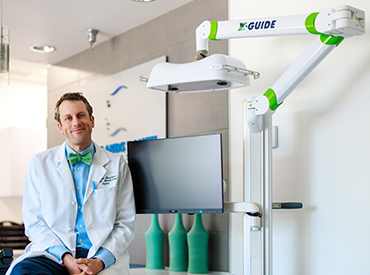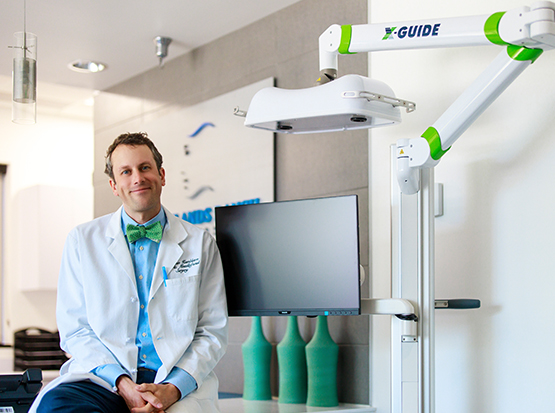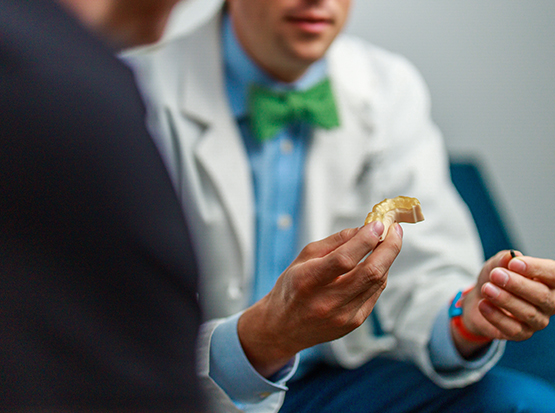 Dental implants have been around for centuries, and the technology and processes used have only continued to improve. When properly cared for, a dental implant may last for the rest of your lifetime, permanently replacing the root of a missing tooth. In addition, the titanium post is biocompatible, meaning that it naturally fuses with your existing jawbone to form a strong bond.
Dental implants have been around for centuries, and the technology and processes used have only continued to improve. When properly cared for, a dental implant may last for the rest of your lifetime, permanently replacing the root of a missing tooth. In addition, the titanium post is biocompatible, meaning that it naturally fuses with your existing jawbone to form a strong bond.
One of the most common concerns about dental implants is whether or not they are painful. After all, the doctor is drilling into your jawbone and inserting a metal post or screw, which may cause some concern. Put your mind at ease and feel more confident about your pending implant surgery by understanding what to expect.
Is Surgery Painful?
Dental implant surgery should not be painful, and your doctor should give you an anesthetic before the procedure. The oral surgeon may apply a local anesthetic to numb the area where the implant will be inserted. If general anesthesia is used during surgery, you will be asleep and should not feel any discomfort. Even if you are under twilight sedation, you should not feel any pain.
However, you may feel some pressure if you are under light sedation rather than full sedation. With light sedation, you will hear the instruments the doctor is using, and you may feel some pressure from the drill, similar to having a cavity filled. Your jawbone does not contain any nerve receptors, so inserting the implant should not hurt.
Will There Be Post-Op Pain?
Immediately after surgery, you will still feel the effects of the anesthesia and any local anesthetic applied. Your doctor may have given you some pain medicine before the procedure as well. This medicine should keep you reasonably comfortable for the first day or two.
Once the anesthetics wear off, many patients describe the pain as an ache, similar to having a tooth extracted. Over-the-counter pain relievers such as ibuprofen or acetaminophen are often enough to manage any discomfort. However, the affected area may be sore for the next week or two due to the incisions made in the gums near the jawbone. Your doctor may prescribe something stronger if you are in pain, but it should subside after a day or two.
How Can I Be Proactive About Managing Any Pain?
One of the best things you can do is follow any pre- and post-operative instructions that your doctor provided. Your doctor wants it to be as positive and pain-free of an experience as possible, so these instructions will help you to stay comfortable. Recommendations may include:
- Apply an ice pack wrapped in a towel to your cheek.
- Rinse your mouth with a saltwater solution a few times a day starting the day after surgery to help prevent infection.
- Follow a liquid diet for the first 2 or 3 days to minimize any pressure on your jaw, and avoid drinking with a straw.
- Avoid foods that are very hot or very cold for the first few days.
What Might Cause Pain After Surgery?
Everyone’s pain tolerance is different, but many patients find that the pain they feel is manageable and less than they anticipated. However, if you do experience continued pain after several days, there may be a few potential causes:
- The implant was not fitted properly.
- There is an infection at the surgical site.
These issues are rare, but they can occur. To help prevent improperly placed or fitted dental
implants, make sure you are treated by a board-certified oral surgeon with implant experience. Take any antibiotics they prescribe after surgery and gently rinse your mouth with a warm saltwater solution to help ward off infection.
Contact your doctor immediately if you are experiencing significant pain so that they can determine what the issue is and treat it. But keep in mind that overall, dental implant surgery is considered safe, and many patients do not experience any major complications.
Restoring Your Smile with Dental Implants
If you are considering dental implants, schedule a consultation at Highlands Ranch Oral & Facial Surgery or a practice near you to learn more. Know what to expect so you can feel more comfortable and confident about the procedure.




